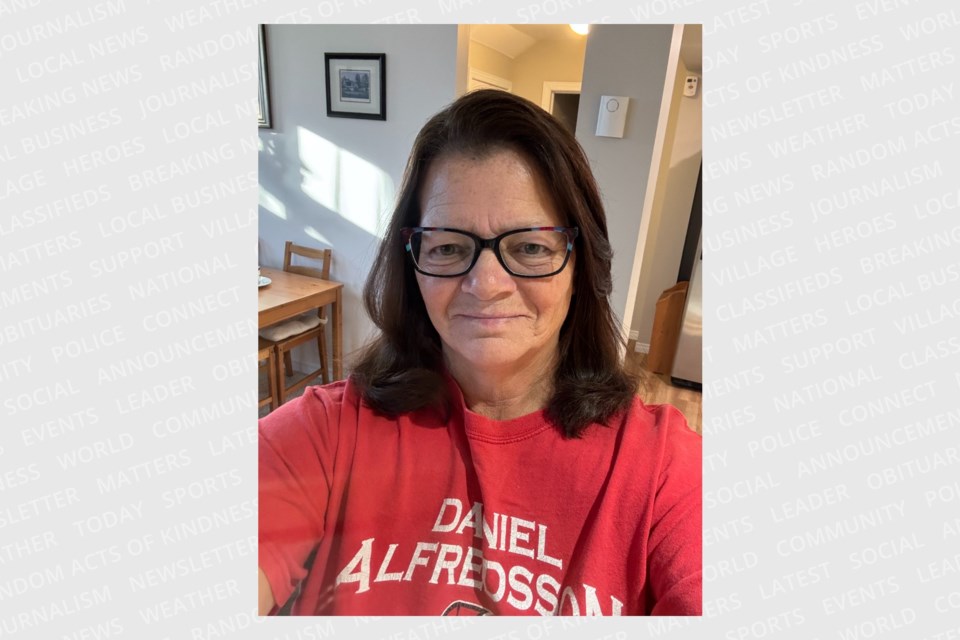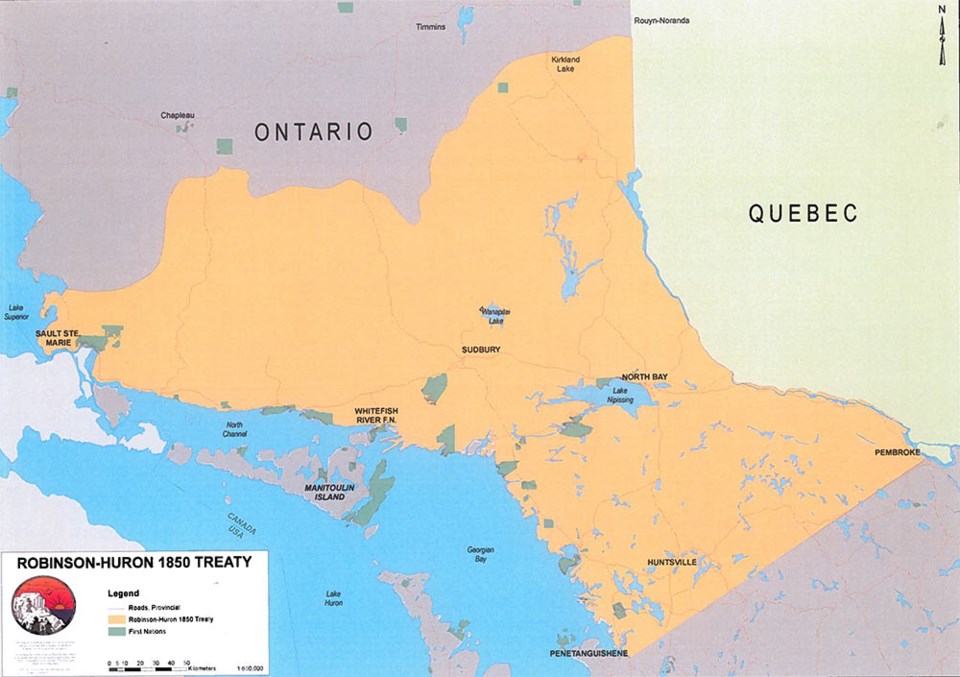While many are familiar with First Nations in Robinson Huron Treaty territory, there’s a small group of Indigenous people in the north that you may not be aware of: Sudbury 817.
It’s a list consisting of more than 1,000 people who are not members of any First Nation, despite being the descendants of Indigenous people, yet are entitled to rights under the 1850 treaty — including a portion of the $10-billion settlement between the Crown and the Robinson Huron Treaty Litigation Fund (RHTLF) for past compensation.
The litigation fund has set aside one per cent of the settlement for treaty beneficiaries who are not members of any of the 21 First Nations involved in the treaty annuities claim. While members of those First Nations received per-capita payouts from the settlement proceeds last year, people on the Sudbury 817 list — like Mattawa, Ont. resident Donna Bastien — have yet to receive a similar payout.
“We haven’t received anything yet,” Bastien told SooToday.
“They continue to send us in circles and say they don’t have everything they need from us.”
Bastien is looking forward to using her cut of the settlement proceeds to pay off some debts and create a nest egg for her retirement.
“It’s a life-changing amount of money — it’s not $100 we’re talking about here,” she said.

Donna Bastien counts herself among the 1,059 people on Sudbury General List #817 who are eligible to receive Robinson Huron Treaty annuities. Photo supplied
But the Robinson Huron Treaty Litigation Fund — the group responsible for litigating the annuities claim on behalf of treaty beneficiaries — has informed people on the Sudbury 817 list that it cannot distribute funds until it obtains years of missing data from Indigenous Services Canada.
“They won’t tell us specifically what’s missing,” said Bastien.
“They continue to say that they are waiting on data from the list provided by Indigenous Services Canada. Well, what data are they waiting for? We don’t know. They won’t tell us what they’re waiting for.”
In an email to SooToday, a spokesperson for Indigenous Services Canada said general lists like Sudbury 817 were created as an administrative tool to recognize those on the Indian Register who are not affiliated with or a member of a specific First Nation. In all, there are 11 regional general lists across Canada with a total of approximately 3,500 individuals.
The Sudbury General List #817 has 1,059 individuals listed as of Feb. 1.
“While these individuals are not affiliated to a specific First Nation in the Indian Register, this group has historically been linked to the Robinson Huron Treaty and are eligible to receive treaty annuities,” the Indigenous Services Canada spokesperson said.
Indigenous Services Canada has confirmed that Robinson Huron Treaty Litigation Fund has requested information to help them administer a portion of the settlement funds for non-member beneficiaries, including those on the Sudbury General List.
The government department said it is “working closely” with the litigation fund “to ensure that they are aware of individuals on the Sudbury General List, while respecting privacy requirements.”
In a video posted to the Robinson Huron Treaty Litigation Fund's website this past December, the appointed trustee for non-member beneficiaries and applicants to the one-per-cent fund said the litigation fund received the Sudbury general list from Indigenous Services Canada “after numerous requests to obtain it.”
“However, the list we have is missing data,” said Allan Manitowabi. “It contains the names of individuals for only certain years. This means missing names of possible eligible non-member beneficiaries.
“We continue to work with Indigenous Services Canada in getting this missing information — and while we do not know how long it will take, we are very hopeful to have it soon.”
Manitowabi added that Robinson Huron Treaty Litigation Fund is “one step closer” to establishing an online portal for those eligible to apply under the one-per-cent fund in order to access information. “We first need to develop the full list of individuals who are eligible to apply under the one per cent,” he said.
The Robinson Huron Treaty Litigation Fund did not respond to a request for comment made by SooToday earlier this week.
In an open letter to media outlets earlier this month, Bastien said the Robinson Huron Treaty Litigation Fund has “continuously provided reasons and excuses for the delay in payments to the members of 817.”
“This lack of transparency raises several questions regarding the nature of the compensation disbursement agreement and whether the owed funds are accruing interest or being allocated towards Allan Manitowabi’s salary,” Bastien wrote.
“We would also request a full accounting of the funds being held for distribution to 817 members.”
Bastien told SooToday that she and others who have connected through a Facebook group named Sudbury 817 are growing increasingly tired of “canned responses” from the litigation fund with respect to the eventual distribution of the one-per-cent fund.
“It’s extremely, extremely frustrating, and it makes us feel like we’re being screwed over — again,” she said.
“The government did this to Indigenous people for centuries, and now, our own people who are supposed to be representing us are doing it to us again.”
